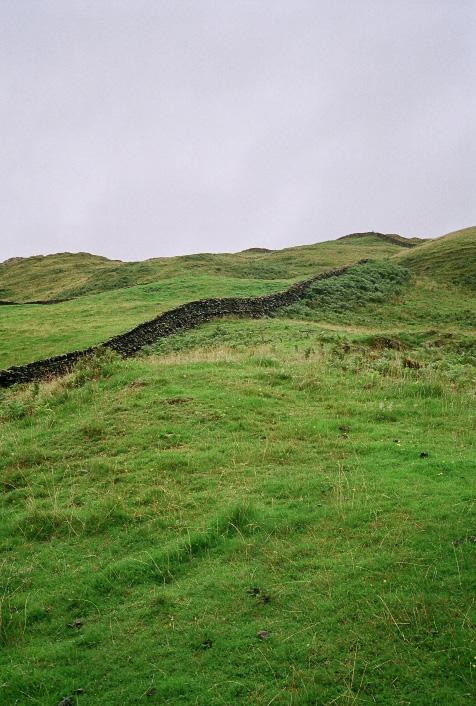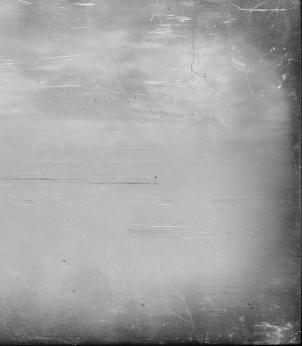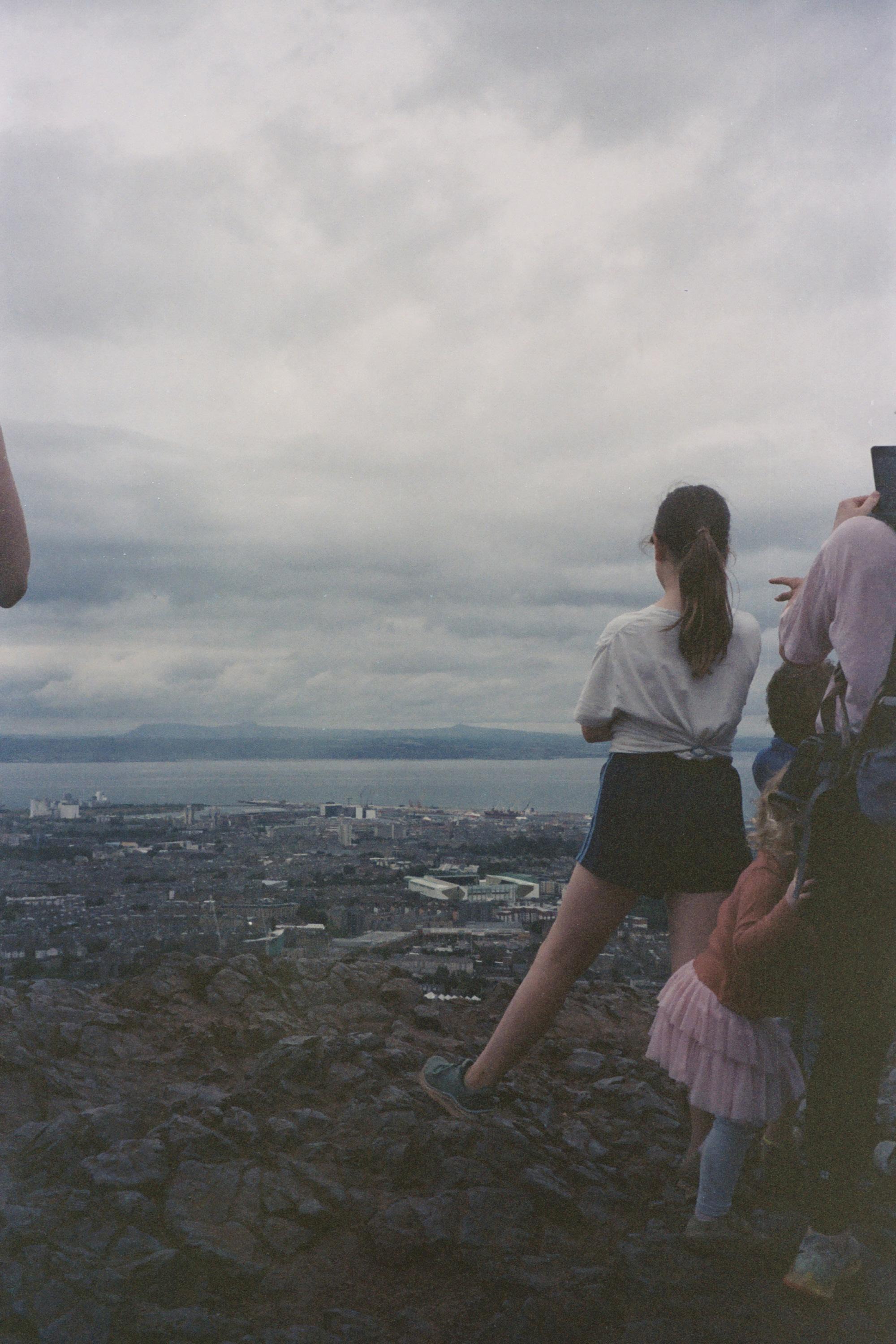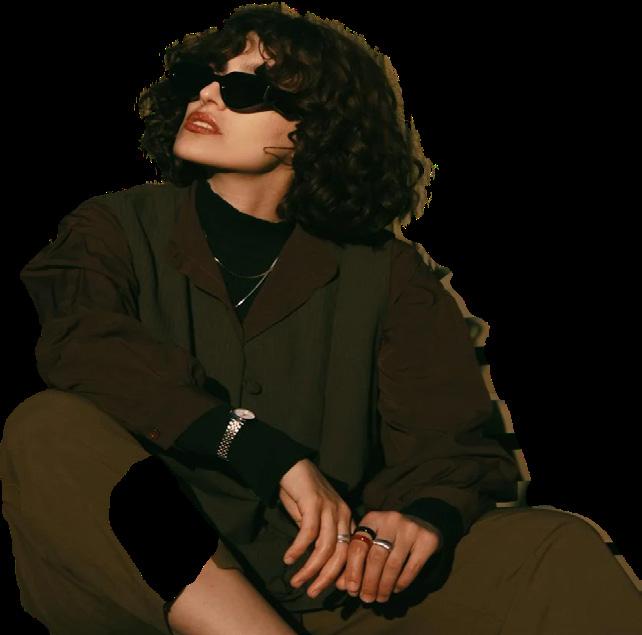LIBERTAS
Vol. 30, No. 4

L A N M I I

Vol. 30, No. 4

L A N M I I
2. Untitled
Dawson Kosmas
3. Harmar Bridge/Where All the Marbles Went
Ezra Minard
4. the space between.
Koryn Smith
5. The Signs and The Portraits
Selin Deniz Akdoğan
7. August’s Illness
Mary Herdelin
7. Mkodad
Nadia Horak
8. Watching
Nate Green
9. Orion’s Realm
Robin Glass
10. At The Library
Eli Bassett
11. ‘Till the Cows Go Home
Dawson Kosmas
12. New Seat
Cate Goodin
13. Reflection on Ctrl
Nathaniel Frempong
14. Existence
Mav Smith
Editor-In Chief
Cate Goodin
Caroline Ewing
Junior Editor-In-Chief
Cole Erickson
Secretary
Clara Oyanguren
Media
Clare Ireland
Workshops
David Anderson Montes
Events
Kathryn Helms
Fiction Editors
Ezra Minard
Mario Perez de Leon
Claire Ireland
David Anderson Montes
Poetry Editors
Katlyn Saldarini
Maple Griffin
Anne Mason Roberts
Kella Jahn
Mary Troy
David Anderson Montes
Claire Louise Postom
Robin Glass
Sophia Tsioulcas-Sherman
Layout Editors
Avani Damidi (lead)
Cole Erickson
Emma Huff
David Anderson Montes
Julia Carey
Ezra Minard
Mario Perez de Leon


Ezra Minard
Harmar Bridge was built for cargo trains in 1856, one hundred and fifty-four years before Hugo graduated from North Hills High. Its once-celebrated cover eroded and the City Council, in its infinite wisdom, decommissioned the train bridge in 2005 for safety concerns. This monument of American industry rusted and sagged, threatening to break the still river water below.
Years passed as rusty rails grew into tetanus traps and weeds grew into walnut trees around both ends of the river, sentencing the bridge to obscurity to all except the students of North Hills High.
Hugo’s grad party featured a local band, finger sandwiches, and one too many questions about his future from relatives. Despite his $490 in pirate booty, Hugo’s favorite grad present did not come in check form from well-to-do relatives, but from signing off on a shipment delivered in the bed of a pickup truck sent by his Grammer, who was too busy to attend the party herself.
After signing, Hugo asked the delivery man, “How much for the truck?” And with an inherited sense for bargaining, he signed for that too.
You’d be surprised how far $490 could stretch in antiquity West Virginia.
Earlier that day and across town, Hugo received his North Hills High School Diploma, but not before kissing Principal Angel on the lips to thunderous applause from his classmates. Thank God I’m a private citizen, Hugo thought as he snatched the diploma from Principal Angel’s shocked hands before it was too late.
Hugo’s Grammer was the proud owner and proprietor of an antique store in Petroleum, West Virginia, called Piles & Piles. While most of its loyal customers—the few, but mighty—gravitated toward her collection of baseball cards and Playboy magazines, Hugo was the primary, and only, customer of its extensive and kaleidoscopic marble collection. Ironically, Piles & Piles only carried three items.
“Ring me up twelve of dem blue ones, Grammer,” Hugo would say to the only other person ever in the store on any given Saturday afternoon. He would take a marble to the bridge and roll it along its tracks, counting the seconds the glass orb tightroped on the steel rails before slipping through the cracks. Then, he would count the seconds until he heard a little splash from the marble breaking the water. Eventually, a “marble bridge drop” became Hugo’s personal chronograph. Some measure time in hours, minutes, and seconds.
Petroleum only had so many antique collectors. Soon enough, Hugo’s Grammer’s profits dried up, and she was forced to close Piles & Piles, but not before promising Hugo the marble collection. The building was placed on the local paper’s For Sale page and didn’t leave until that publication closed, too.
Naturally, the town’s teenagers took advantage of the bridge’s misfortune, smoking on and jumping off its decaying wooden planks. Once frequented by whistles, steel, and steam, it became a place of rock music, rope swings, and hammocks between its rusty tresses.
The day after his graduation and party, Hugo drove his newly acquired pickup to the bridge (saving him a walk) and joined his friends to celebrate their accomplishment. His foot splintered on a wooden beam supporting the rail before an unsuccessful front-flip
that collapsed into a belly-flop.
Time flew. Most of Hugo’s friends left for college or got better jobs in the city. Hugo stayed, eventually finding employment as a carpenter. Like the rest of the town, the teenagers of North Hills High slowly forgot about Harmar Bridge, sentencing it to obscurity to all but Hugo. His foot healed.
On slow work mornings, Hugo would drive to the abandoned bridge, parking his pickup between clusters of walnut trees. He glued marbles from the truck bed to the bridge’s tresses, resurrecting it into colorful life as a 3D canvas of glass orbs. From a distance, it looked like an impressionist painting. Sunlight bounced off the geometric surfaces, illuminating the bridge in a glittering sea of multi-technic marbles. Of course, no one saw it but Hugo.
He saw all that he had made, and it was good. And there was evening, and there was morning.
One too many storms later, the bridge was in the river, and Hugo was in handcuffs for DESTRUCTION OF PUBLIC PROPERTY. It’s a stroke of luck that the bridge didn’t collapse until Hugo returned to solid land to start his truck for work.
Initially, everyone assumed the bridge collapsed in the storm due to neglect. There was never an investigation—marbles sink after all—and there wasn’t money lying around to fund underwater exploration to suss out a specific cause. Regardless, Hugo came forward. It was the neighborly thing to do.
Hugo’s Grammer wasn’t around to bail him out; she had left town.

Selin Deniz Akdoğan
When A awoke she found herself lying on the cold marble of a long corridor in a hazy confusion and all alone. She noticed she couldn’t quite see the ends of the corridor. It extended outward in both directions like an infinite tunnel, dimly lit by a pallid light. Her confusion was replaced immediately by a white sober dread as a low growl, scarier than a lion’s and similar to a demon’s, echoed through the walls. Her body recoiled and she pressed herself against the wall as she tried to pinpoint which direction the growl came from. The growl resumed in regular intervals, always in the same horror and volume, yet she couldn’t comprehend its source. Perhaps due to the echo, it sounded like it came from all directions at once. As a matter of survival, A made a hasty choice and started running towards a random direction. However, no matter how much she ran, the growl never faded. She was neither closer to it, nor farther away. In her exhaustion, she collapsed onto the ground and started weeping.
“Where am I?” she cried. “What have I done to deserve this?”
Her voice, along with the continuous growls, echoed back to her as the sole reply. After minutes of desperate crying, she got tired of her panic, and calmed down. From where she sat, she started examining the walls of the corridor, ignoring the growling monster. The corridor was adorned with neon signs and portraits, taped to the walls in distances of perfect precision. The ones she could make out from her focal point were a shape of a star, a lightning bolt, a four-leaved clover and the portrait of an anonymous English soldier.


“Is this a puzzle to decipher?” she thought then, “Are these signs actually hints?” She started studying them, walking back and forth in the corridor, examining the different neon shapes and pictures of anonymous people. However, it was soon that she realized in this infinite corridor, it was impossible for her to examine all of these tapestries, and she concluded that these cannot be hints.
Her next panic came when she realized that in this empty corridor with no doors and no exits, she was all alone and at the mercy of the inevitable death by thirst and starvation. She walked and walked in the corridor to find the end, and she gave up after a couple of hours.
She laid down on the floor, allowing death, in any form it wishes - be it by the growling monster or the thirst - to take her. She decided to spend her last moments philosophizing instead. She thought first about all the possibilities that brought her here. She then wondered if this situation was even real and not simply her imagination. And from there, her mind travelled, touching every topic available; she wanted to distract her mind from the inevitable. At some point, a numbing chill crept from her fingertips to her crown and she trembled softly believing that this numb was the final mercy of death.
It was her grand surprise that when she woke up, realizing what she felt was nothing but sleep, she found herself to be in perfect condition. A was not thirsty in the slightest, didn’t feel an ounce of hunger, and despite the resuming growls, she wasn’t eaten by a monster. It was about two days that took for her to understand the absurdity of her situation - she was trapped in an infinite, dimly-lit corridor and she was practically immortal. She didn’t possess the need of humans for survival. A couldn’t decide whether she liked this situation or not; while she was practically indestructible, she felt rejected even by the jackal.
A got used to this new place in a few days. In her consciousness, she would explore the signs and portraits, and she would sleep on the marble floor when she was tired or simply bored. There was a point where this felt insufficient to A, so she started dreaming. She dreamt of countless different love stories, and she used the handsome ones in the portraits as her inspirations. She dreamt of becoming a famous actress, writer, scientist, singer… And the more she dreamt, the more her dreams became real. The portraits became people, they whispered to her; she heard them. Once, she caught herself holding the portrait of a handsome soldier, whom she named as Kenneth; kissing his painted lips. When she realized what she had been doing, she burst into an uncontrollable laughter at the madwoman she had become.
However, we can’t judge A for the things she does, can we? She is trapped in an infinite corridor all alone, so the only life she lives is the one in her dreams. If one doesn’t have a life, she can create one for herself. That is the power of being a human.
Of course this humanity has its downfalls. As time passed and A looked at more paintings, she developed an insatiable desire to paint. Her burning desire to create a portrait like the ones she has been looking at for weeks has consumed her whole. But she didn’t have canvas, brush or paint. Not even her own blood would suffice. This drove her mad with envy. She paced around in the corridor like a trapped and desperate animal, thinking of ways to create. A took a portrait, her fingers traced the brushstrokes, her eyes trailed over every color and every line. “Tell me,” she whispered, “how can I paint?” The portrait remained still and silent, and the once gentle smile on the lips of it seemed now like a mocking sneer. “Tell me!” she exclaimed. “You speak, I know you do! Talk to me!” Then, in a fit of rage, she started ripping apart as many portraits as she could to pieces. It was only when she was holding the torn pieces of Kenneth in her hands that she came to her senses and realized what she had done, and she fell into a winter long depression.


One cannot remain in despair forever, right? So A recovered, and she started exploring the corridor once again. She walked, saw new portraits and signs, and dreamt of new lives. This time around, A started to worship the corridor. It allowed her to live all the lives she wanted to live. If she was outside, in the normal world, she would be living only one life. Here, she could live as many lives as she chose. It was heaven, and she was God - she was perfect.
Soon, A completely forgot the perpetual growling that resonated through the walls. The growl, in a consistent volume and regularity, became A’s normalcy. If it ever stopped, she would truly lose her mind. How funny, is it not? The growl that once drove her to a terrible fear now became her companion. In short, despite hoping never to encounter the monster that caused it, A relished in the sound.
A spent years in the corridor and she lived them in pure joy. Certainly, there were periods of depression and desperation, however she lived a generally happy life all alone. That was until one day, on her regular walk, she saw an object on the wall that was neither a neon sign nor a portrait. Her heart filled with fear and excitement as she saw a new object for the first time in years. Her slow, hesitant steps carried her to the glinting object, as her breathing heaved with anticipation.
She stood in front of the object. Then let out a horrific gasp. For a moment, A wanted to gauge her eyes out so as not to see what she was seeing, and she squeezed them tight in heavy denial. However, when she opened them again, the mirror was still before her. Her breath fogged the surface that reflected the utter grotesque, as she finally saw the source of the perpetual growl.
At that moment A understood why this corridor was her heaven. It was because in her solitude, she forgot that she was a monster.

Nothing’s meant to be planted in this heat
Even if I had the willpower to bend
To till and water the dry hardened topsoil
The only moisture left is unwanted
From afternoon thunderstorms to dew droplet on a cool lemon meringue pie
Words that won’t manage to scratch out of my voice box
A heavy headed, ears stuffed feeling
Printed into a notebook bleached by the sun after rain
Any color faded, chapters left curled up together
Complete opposite to my darkened-freckled-summer skin
Any day now I’ll be picked off the vine
Blanched, boiled, frozen and submerged again
Sealed up only to be opened in the last frosts of early spring

mkodad Nadia Horak
given a Choice between being alone in the clouds or being alone on the earth
Our mother would Comfort us as we cried driven by the Desire to try to win or try your best
Our father would hug us as we Slept called to Dream with your heart or your mind
Our friend would find us as we Searched given a Chance to change the world or change your world
I would find you in the Space between turned Away from your family or yourself
I would find you in the space Alone Scared to come back to your home or your life
I would find you in the space Forgotten healed with Love and Peace
I would leave you in the space Promised
Mkodad means “find one another” in the Potawatomi language.

Nate Green
The air chokes with summer. Heat and humidity seep through every crack of every building in Tallahassee, and mosquitoes and gnats rush from their hatching places in the bogs straight through those crevices. Antonio slaps his arm. He picks up his pen, bright and blue and glossy. His eyes, of the same color and manner, flit between his notepad and Mikayla’s shirt, a dull green button down. Antonio reads from a paper to the right of his notepad.
“So, our work here at Bowl-Mania revolves around customers and customer service. It is of the utmost importance to cater to the customer’s experience from the moment they walk in the door. Tell me about a time when you went above and beyond in your efforts to help a customer,” he recites.
“Well, this would be my first job,” Mikayla starts, and Antonio scribbles something with his pen. She clears her throat. “But in every other part of my life, I always do more than is asked of me. Like for example, I’m the president of my school’s chess club, and recently we had a bunch of people complain that the time didn’t work for them. So I organized a separate time, even though that meant I had to commit to the club for longer, to make sure everyone could still play. If I worked here, I would bring the same energy and commitment,” she says, and she smiles at Antonio. He looks up, meets her eyes for a second, and looks down at her shirt.
“Okay,” he says, his pen dashing across his notes, “that’s all I have for you today. We’ll call you and let you know in about a week.” He extends his hand and Mikayla shakes it. He holds it for a second too long. Mikayla squirms in her seat, grabs her bag, and looks at her phone.
“Well, actually, I think my dad is gonna be late, so I’m gonna sit here for a while if that’s alright,” she says. She texts her dad something rude.
“Oh,” Antonio mutters, “well if it’s okay I might sit with you and get to know you. Won’t hurt your chances.” He smiles at her, a wide, white, crooked smile. Mikayla yearns for a text from her dad. But her phone is silent. Antonio leans back in his chair, putting his hands on his head. He likes interviewing people. Especially young people. Especially girls. He figures she likes him. Or else she’d leave, right? She thinks of saying she has to go to the bathroom, then hiding out there. But she needs this job, doesn’t she? Or her dad will yell at her and call her ungrateful and a failure. Not really, but she’ll feel he’s saying all those things, underneath his words of encouragement.
“So you play chess, huh?” Antonio says, cutting through her thoughts. “Yeah, I used to play chess. I was pretty good. Think I got up to 850. It got too easy for me, I guess. I get bored of things that come too easily for me. It’s like bowling. Can’t stand it anymore. I beat everyone I play, so I figure there’s no point.” He doesn’t think she’ll be particularly impressed. He doesn’t think anything in particular. He just likes to talk, and the first words that come to his mind are usually the ones he says, especially when he’s comfortable.
“Cool,” Mikayla musters. She grabs her pants and squeezes the fabric in her hands. He ogles her. Why does he ogle her? Why did she have to learn that word in English class? Everything would be better if she didn’t have to be so descriptive. If he could just be looking, and not ogling. His eyes are gross; they’re shallow, the color of an empty water bottle. If only her dad were here to pick her up. Where is he? She doesn’t know, but she can check. She picks up her phone and looks at his location. Ten minutes away. Great. Perfect. Ten more minutes and she’s in this guy’s trunk. He’s tugging at his shirt in a weird way. Like he’s trying to cover his stomach. And his other hand is picking at his teeth. Does he think she’s into that?
“I’ll make her wait a couple days,” Antonio thinks. “And then I’ll call her and tell her she got the job, but she has to train under me for the first two weeks. And then, yeah, then I’ll figure it out from there. It wouldn’t be weird, no, it’d be fine. Twenty-three and seventeen. That’s not bad!” He finishes picking at his teeth and shifts forward, his hands clasped together. He studies her shirt again. “I wonder if she’s thinking…thinking about me. Probably. I’d be. Yeah, I’d be.” He moves his right hand down to pull at his shirt again; he tugs his pants too.
“Ha! Ha ha ha!” a laugh echoes from the bar. Antonio and Mikayla look across the restaurant.
I’m smiling, keep smiling, keep chuckling, clean the mug, put it away. Look down for a second and frown, just for a second, then smile, then refill. Antonio over there taking a long time. The bartender’s gaze shifts to that table. Wonder if he’s…nah, he wouldn’t be. She quit in a big hurry and I thought corporate…guess they don’t care, don’t care, never did care. She wants another drink huh. All the way at the end, down there. Why sit there if you want me always over there? Sit in the center. Have some courtesy. Wants another so I’ll give her another. Smile while doing it. Smile. Real smile. With the eyes. Kittens. Puppies. Act, act, act. Antonio’s being awfully squirmy. So is she. Different ways. He’s excited. Yip yip yip! Jumping in his seat! She wants to go. Run. Run. I’d tell her to. But I couldn’t. I’m just here. Just here. Just watching. Smile. Refill. Clean. Watch. Not my job. Not my job. Not my problem.
I’m just watching.
I’m just watching.

Robin Glass
Midnight chariot glides, Uncertain light flickering above, Starlight shrouded
Lone cavalry striding, a solitary crimson halo ahead Blacktop races underneath, Dense haze heavy—
But not a coffin, not a cage
Not as Erato blesses this steed— her words, echoing—
Ebony gleaming against the fogged world No; racing through the night, Only freedom flies alongside
Orion’s starlit blade cuts through the veil,
Asphalt reflecting his starry bow, Blessing the night even Artemis hides from Here, alone, the mist could strangle, Here, the scorpion could sting, Here, alone, there is nothing to run from
Only a hazed path stretching

‘Til the Cows Go Home
Dawson Kosmas

“‘Til the cows go home”—He was obviously an urbanite. But the error rang through her head for days, that one syllable, a glaring shibboleth. She knew her mother would speak now and forever hold her peace. But fuck it. So they did. With objectionable fervor and frequency. Not at all hours but at all theirs. And not to no end but always as an end in itself. Especially during the gloaming or on park benches in broad daylight. Sneaking when the baby went down for naps and as loud as possible from that Brooklyn balcony that they broke onto “in protest” of whatever it was that they stood against that week. Not once for six months in 2019 when a drawing at his gallery of a mostly black and almost-but-not-quite-square square turned into an argument of whether he was one and her ambitions and why hadn’t they left the city yet and your mother! And later, after the move, with less fervor and frequency but a tenderness found only in Appalachian middle-age. Though they had a command of sexual syntax by their late twenties, it wasn’t until he was 58 and she 60 that they found the full semantics of their love on an August afternoon beneath the pear tree at the edge of the edge of the pasture. In the final years, they came less often than the cicadas and certainly with less cacophony.
Now, with their love told only by the silent etchings of the bedposts on the pinewood floor, it is hush. Outside the window, past two stones and the pear tree that shades them—the sound of hooves.

Reflection On Ctrl
Nathaniel Frempong
Her
It’s how she sits—
Clothed half feminine, half feminist— Pretty enough for society’s dreams Yet modest enough for society.
A supermodel deserves Adoration, love galore, Reflecting the “normal girl”
Her
An image
In each screen, a truth lies: Tv’s drunk on outdated wires and white plastic. When the key no longer works, Will you glue it back with her tears? Or simply skip the letter?
Her Stories sit unanswered, Printed on the heel of her sock. Wishing for fingers to run
Along her image, Scarring themselves with inverse green. Do they run on Or are they severed with illusion?
Her Body resting in interlude, Broken clocks, Caught in the foreground. A little dirty, Conceal with honey brown And a dab of green foundation.
Her Trees, are they in the back?
As if to blur a sin, Vines go through cracks, And it slips through my mind— Gina
I’d forgotten her name, Go Gina, we chanted When she jumped for our amusement in her Garden of Eden, If you say it like dat.
Where her doves in the wind Spark life within
Her
If Drew Barrymore was here, Would she see pretty little birds? The weekend of prom, Anything she desired— 20 something, Wavy hair, And a bit of control. Her.




Hello and Goodbye,
As we enter summer, perhaps the most liminal time of year, we hope you carry these words with you to keep you company. Spaces are hard to put into language, and sometimes the only word you can give to them is liminal. This theme has resurfaced time and again since we’ve been a part of the magazine, and, finally, it’s found its place in the Libertas corpus. When we sent out the artist call, we hardly knew what to ask for, but the responses found creativity in ambiguity.
You might recognize the stairwell on this front cover. It at times can feel transportive, but soon it will be gone. The transience only amplifies the feeling it evoked when one thought it was a permanent place. Why do I like these white cinder blocks so much? Why are these the things I want to hold onto?
Liminal normally becomes coupled with the term nostalgia, and nostalgia normally becomes coupled with these last days in May. We’re so proud of our graduating seniors, especially Max, Elsah, and Audrey, who revived this magazine after the pandemic. We wouldn’t be where we are without you.
Peace and Prosperity,
Caro & Cate

We apologize for an editing error in the last issue. The poem “Icon” was misattributed to Mav Smith, yet it was actually by Sophia Tsioulcas-Sherman. We have corrected the error on the online issue, and we are happy to be publishing Mav’s correct poem, “Existence,” in this issue.